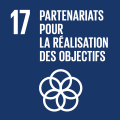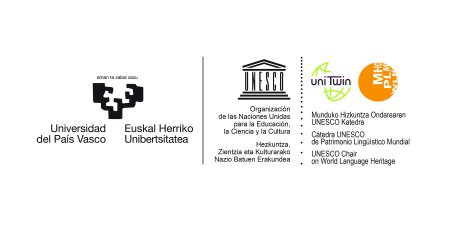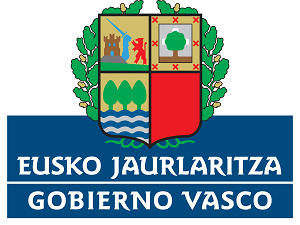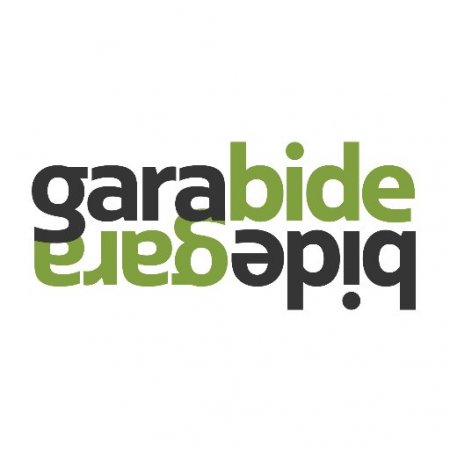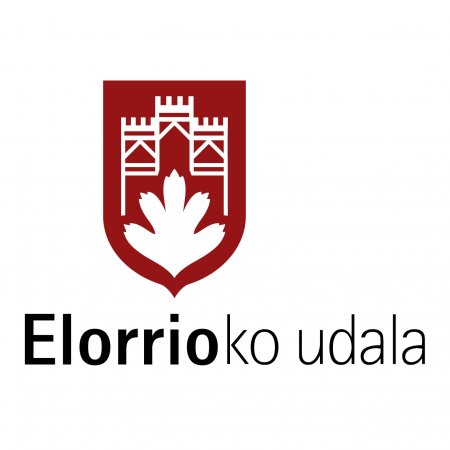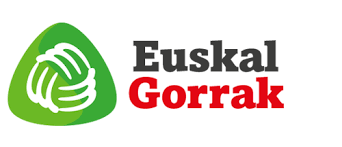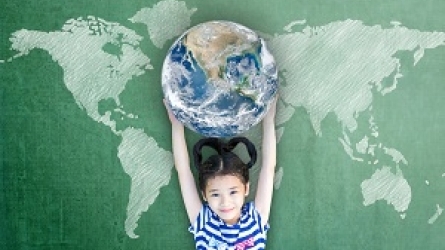
Hizkuntza gutxiagotuen biziberritzea eta garapen iraunkorra
Description
This Summer Course will be face to face. But it can also be followed in live online classroom format and you will be able to participate virtually from anywhere. You can access the file of the live online course by clicking on LIVE ONLINE.
In the 2030 Agenda for Sustainable Development by the United Nations there is no link between development and languages and cultures; even less linked to minoritized and endagered languages. Nevertheless, Basque people are working on sustainable development together with the revitalization of Basque language. This same process can be seen in other places or language-communities too, such as the Nasa community in Colombia.
In this Course, in addition to a presentation of the book about this matter with the contributions of international experts, the cases of the Basque Country, Latin America and Africa (Cameroon) will be presented.
Objectives
Explain the link between collaboration for sustainable development and language cooperation, and spread the knowledge about the relation with each other.
Deepen into the characteristics not acknowledged of the linguistic revitalization processes.
Remark the value of minoritized and endagered languages in development.
Show and create alliance networks between the Basque Country and minoritized and endagered languages (and communities) around the world.
Deepen in the understanding about the value of development of the multilingual education based on the minoritized language.
Deepen in the understanding of language diversity and minoritized and endagered languages, and the sensibilization towards them.
Activity directed to
- University student
- Students not from university
- Teachers
- Professionals
- All public
- Educators, non-governmental organizations, journalists, politicians
Program
16-09-2020
Erregistroa eta dokumentazio-banaketa
Presentation by the Director of the activity
- Ines M. Garcia Azkoaga | UPV/EHUko Munduko Hizkuntza Ondarearen UNESCO Katedra - Katedrako arduraduna
“"Hizkuntza aniztasuna, hizkuntza gutxiratuen biziberritzea eta garapen iraunkorra" liburuaren inguruan“
- Itziar Idiazabal Gorrotxategi | UPV/EHU - Ikertzailea
Break
“Kameruneko hizkuntza aniztasunaren egoera (Hizlari honen partaidetza Zoom bidez izango da)“
- Gabriel Delmon Djomeni | University of Dschang - Ikertzailea
“ Euskararen biziberritzea eta giza garapen iraunkorra Euskadiko Autonomia Erkidegoan“
- Patxi Baztarrika Galparsoro | Andoaingo Udala - Hizkuntza politika eta plangintzan aditua
Elkarrizketa
17-09-2020
“Kameruneko hizkuntza batzuetako komunitateetan murgilduz eta garapena aztertuz (Hizlari honen partaidetza Zoom bidez izango da)“
- Gabriel Delmon Djomeni | University of Dschang - Ikertzailea
Break
“Nasa yuwe: hizkuntza biziberritzea eta garapena“
- Ane Ortega Etcheverry | Begoñako Andra Mari Irakasleen Unibertsitate Eskola - Irakasle-Ikertzailea
“Hizkuntza lankidetza maya yukatekaren biziberritzean“
- Jon Sarasua Maritxalar | Garabide Elkartea
Elkarrizketa
Directors
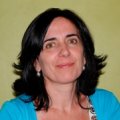
Ines M. Garcia Azkoaga
Euskal Herriko Unibertsitatea
Ph.D. in Basque Philology. I am Associate Professor at the University of the Basque Country (UPV/EHU) and a member of the UNESCO Chair on World Language Heritage (UPV/EHU). I work in the Department of Basque Language and Communication and I have also worked in the Language and Literature Teaching Department. I am currently teaching Basque as a specialty language in the Degree of Physical Activity and Sports Sciences, in addition to several Master courses. My research field is multilingual education with minorized languages and language learning, with a focus on exploring text and discourse productions. Those are the main topics of my publications. I have been president of the Education Section of the Basque studies Society (Euskko Ikaskuntza). Since 2018 I am responsble for the UNESCO Chair on World Language Heritages of the University of The Basque Country (UPV/EHU).
Speakers

Patxi Baztarrika Galparsoro
Andoaingo Udala
He is an expert in language policy and planning. Bachelor of Science in Philosophy and Education at the UPV/EHU. He is responsible for the Euskara Zerbitzua of the Andoain City Council (since 1980). He was Deputy Minister of the Department of Language Policy of the Basque Government for eight years (2005-2009 and 2012-2016). President of the NPLD (2015-2017) (Network to Promote Linguistic Diversity) Member of the General Boards of Gipuzkoa (1990-1995), head of the upper cabinet of deputies of Gipuzkoa (1999-2003) and councilor of the Donostia City Council (2003-2007). He is also the author of a chapter in the book "Linguistic diversity, minority languages and sustainable development" of the UNESCO Chair in World Language Heritage at the University of the Basque Country (UPV/EHU).
Gabriel Delmon Djomeni
University of Dschang, Assitant Lecturer in Linguistics
Dr. Djomeni is an assistant lecturer in linguistics at the University of Dschang, Department of African Studies and Globalisation. He obtained his PhD in 2012 at the University of Yaoundé I (Cameroon) in Linguistics. His research and publications deal with Minority Languages and Revitalization, mother tongue based multilingual education, and Linguistics. He is also the author together with Prof. Sadembouo of a chapter in the book "Linguistic diversity, minority languages and sustainable development" by the UNESCO Chair on World Language Heritage of the University of the Basque Country (UPV/EHU).

Ines M. Garcia Azkoaga
Euskal Herriko Unibertsitatea
Ph.D. in Basque Philology. I am Associate Professor at the University of the Basque Country (UPV/EHU) and a member of the UNESCO Chair on World Language Heritage (UPV/EHU). I work in the Department of Basque Language and Communication and I have also worked in the Language and Literature Teaching Department. I am currently teaching Basque as a specialty language in the Degree of Physical Activity and Sports Sciences, in addition to several Master courses. My research field is multilingual education with minorized languages and language learning, with a focus on exploring text and discourse productions. Those are the main topics of my publications. I have been president of the Education Section of the Basque studies Society (Euskko Ikaskuntza). Since 2018 I am responsble for the UNESCO Chair on World Language Heritages of the University of The Basque Country (UPV/EHU).
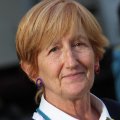
Itziar Idiazabal Gorrotxategi
UPV/EHU
Professor of Basque Philology (1992) and Honorary Collaborator of the Department of Linguistics and Basque Studies at the University of the Basque Country (UPV / EHU). Doctor from the University of Geneva (1983) in the area of Psycholinguistics. He is part of the ELEBILAB research group (https://www.ehu.eus/eu/web/elebilab) where he has directed numerous research projects on language acquisition in bilingual children, on discursive analysis of Basque and on language teaching in bi-multilingual programs (Garcia-Azkoaga & Idiazabal (Eds.) 2015). He has supervised 15 doctoral theses. She is the founder and member of the UNESCO Chair of World Linguistic Heritage of the UPV / EHU https://www.ehu.eus/eu/web/mho-unesco-katedra, where she has recently published a volume on linguistic diversity and sustainable development www .labur.eus / IdiazabalPerezCaurel He is a corresponding member of Euskaltzaindia (Academy of the Basque language).
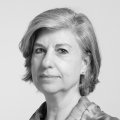
Ane Ortega Etcheverry
Begoñako Andra Mari Irakasleen Unibertsitate Eskola
Filologia Hispanikoan lizenziatua (Deustuko Unibertsitatea), Itzulpengintzan Masterra (Warwick) eta Soziolinguistikan Doktorea (Londres). Begoñako Andra Mari Irakasleen Unibertsitatate Eskolan (BAM) irakaslea da, Hizkuntza eta Literaturaren Didaktika Sailean. BAMen hasi aurretik, Inglaterrako Open University-ko Hizkuntza Modernoak Sailean eta Mondragon Unibertsitateko HUHEZIn irakasle izan zen. EHUko HIJE (Hizkuntzaren Irakaskuntza, Jabekuntza, eta Erabilerak) eta ELEBILAB (Hizkuntzaren Irakaskuntza, Jabekuntza, eta Erabilerak) ikertaldekidea da. COST IS1306 “New Speakers in a Multilingual Europe” Europako sareko Steering Committee-ko partaidea da, bai eta EHUko Munduko Hizkuntzen Ondarearen UNESCO Katedrakidea. Magisteritza Eskolan Hizkuntzaren Didaktikan lan egiten du. Arlo honetan aholkularitza esperientzia handia du jarduneko irakasleekin, HABEn, eta Colombiako nasa herriarekin lan egin du hizkuntza-kooperazioan. Azken urteotan euskararen inguruko jarrerak ikertu ditu.
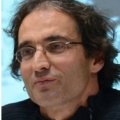
Jon Sarasua Maritxalar
Garabide elkartea. Huhezi fakultatea, irakaslea eta kulturgilea
Komunikazio Zientzietan Doktorea da. Kazetaritza eta Soziologia ikasketetan ibilia. Bertsolaritzaren munduan oso gazte hasi zen eta urte askotan bertsolari gisa aritu ondoren, 2000 urtean utzi zion bertsolaritza publikoari. Mondragon Unibertsitatean aritu da hogei urtez, arlo sozioekonomikoan eta kultura arloan. Herrigintzako hainbat alorretan taldeak sustatzen jardun du, Lanki, Garabide, Sorguneak eta Bagara bezalako egitasmoen sorreran. Autoeraketa, gizarte ekonomia eta hizkuntza arloak landu ditu egitasmo horietan, eta berauei lotutako nazioarteko zubiak. Hainbat liburu eta argitalpen egina da hizkuntza nahiz kultura arloan eta gai sozio-ekonomikoetan. http://bdb.bertsozale.eus/web/haitzondo/view/jon-sarasua
Registration fees
| REGISTRATION | Until 16-09-2020 |
|---|---|
| 77,00 EUR | |
| 65,00 EUR | |
| 20,00 EUR | |
| 65,00 EUR | |
| 65,00 EUR |
Venue
Miramar Palace
Pº de Miraconcha nº 48. Donostia / San Sebastián
Gipuzkoa
Miramar Palace
Pº de Miraconcha nº 48. Donostia / San Sebastián
Gipuzkoa
Sustainable development goals
Agenda 2030 is the new international development agenda approved in September 2015 by the United Nations. This agenda aims to be an instrument to favour sustainable human development all over the planet, and its main pillars are the eradication of poverty, a reduction in equality and vulnerability and fostering sustainability. It is a unique opportunity to transform the world up to 2030 and guarantee human rights for all.

4 - Quality education
Guarantee quality education that is inclusive and equitable and foster opportunities for lifelong learning for everyone. Key issues: free-of-charge, equitable and quality education, access to higher education and training on an equal basis, education for sustainable development, suitable education centres for persons with disabilities, and safe, non-violent and efficient learning environments.
More information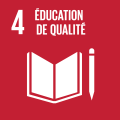
10 - Reduced inequalities
Reduce inequality in countries and between them. Key issues: promotion of the social, economic and political inclusion of all people, equal opportunities, fiscal, wage and social protection policies to favour equality, migration and the policies that affect it, official assistance for the development, regulation and supervision of world institutions and markets.
More information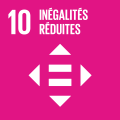
16 - Peace, justice and strong institutions
Foster peaceful and inclusive societies for sustainable development, facilitate access to justice for everyone and construct efficient and inclusive institutions that are accountable at all levels. Key issues: a reduction in violence, mistreatment and exploitation, the rule of law, equal access to justice, a reduction in corruption and bribery, efficient and transparent institutions, participation, access to information, protection of fundamental freedoms.
More information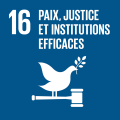
17 - Partnerships for the goals
Strengthen the means of implementation and revitalise the World Alliance for Sustainable Development. Key issues: mobilisation of resources, 0.7% of GDP for official overseas development aid, finances, cooperation in technology and innovation, ecologically rational technologies, skills building, universal and multilateral trade system, coherence on the legislative and institutional levels, availability of data, supervision, indicators and accountability.
More information